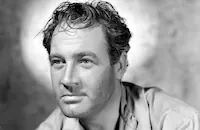Yes, My Darling Daughter

Brief Synopsis
Cast & Crew
William Keighley
Priscilla Lane
Jeffrey Lynn
Roland Young
Fay Bainter
May Robson
Film Details
Technical Specs

Synopsis
Ellen Murray races to the train station to meet Titus Jaywood, the publisher who has come to discuss the publication of her mother Ann's short stories. At the Murray house, Jaywood meets Ellen's aunt, Connie Nevins, who is on the prowl for a new husband after her recent divorce, Ellen's father Lewis who is rushing off for a yachting trip, and Ellen's boyfriend, Douglas Hall. Jaywood is also greeted by "Granny" Whitman, who hints that she knows that he and her daughter Ann shared a youthful fling. When Ellen learns that Doug is leaving to spend two years in Belgium, she decides that they should spend a weekend together alone at the lake. Under the ruse of visiting a girlfriend, Ellen packs to leave for her weekend, but Connie guesses her deception and tells Ann. Confronted by her mother, a pioneer for women's freedom, Ellen responds by accusing Ann of not adhering to her feminist principles, and a chagrinned Ann reluctantly gives Ellen permission to go. When Ellen's father discovers that his daughter is spending the weekend with a man, however, he drives after them, followed by Connie and Jaywood. Granny then calls the police and has them all arrested. Meanwhile, at the lake, Doug sleeps alone on the porch while Ellen sleeps in the bedroom. Arriving home to her father's recriminations, Ellen threatens to leave home and Doug upbraids her family for allowing Ellen to go away with him, then storms out of the house. Granny then advises Ellen to go to Doug, and when he arrives at his boat, he finds her waiting in his cabin to marry him.

Director

William Keighley
Cast

Priscilla Lane

Jeffrey Lynn

Roland Young

Fay Bainter

May Robson

Genevieve Tobin

Ian Hunter
Robert Homans
Edward Gargan
Spencer Charters
Lottie Williams

Rosella Towne
Vera Lewis

Clem Bevans

Paul Panzer
Grace Hayle
Lois Cheaney
Jack Richardson
John Harron
Crew

Film Details
Technical Specs

Articles
Yes, My Darling Daughter
The only Warner Bros. production of its year to be based on a Broadway play, Yes, My Darling Daughter had a daring plotline for its day. Priscilla Lane plays a young woman who is determined to have an un-chaperoned weekend with her fiancé (Lynn). Although her mother (Fay Bainter) is an outspoken feminist, she disapproves of the arrangement and agrees to it only after her daughter learns that, in her youth, she had a similar romantic rendezvous. Even though the lovebirds' weekend turns out to be a chaste affair, their return is greeted with an uproar.
Although perfectly innocent and directed by William Keighley with a light comic touch, Yes, My Darling Daughter created an uproar of its own when the New York State Board of Censors threatened to ban the film because they found some scenes "suggestive." After the situation had generated considerable free publicity, production executive Hal B. Wallis made several judicious cuts that finally appeased the censors. The controversy only fueled public interest in the movie and turned it into such a box-office winner that it opened simultaneously in two Broadway cinemas a rarity at the time.
Producer: Alfred De Liagre Jr.
Director: William Keighley
Screenplay: Casey Robinson, from play by Mark Reed
Art Direction: Carl Jules Weyl
Cinematography: Charles Rosher
Costume Design: Howard Shoup
Editing: Ralph Dawson
Original Music: Heinz Roemheld, Harry Warren
Cast: Priscilla Lane (Ellen Murray), Jeffrey Lynn (Douglas Hall), Roland Young (Titus Jaywood), Fay Bainter (Ann Murray), May Robson (Granny Whitman), Genevieve Tobin (Connie Nevins), Ian Hunter (Lewis Murray).
BW-87m.
by Roger Fristoe

Yes, My Darling Daughter
Quotes
Trivia
Was banned in several parts of the United States due to the subject matter.
The play originally opened in New York City, New York, USA on 9 February 1937 and ran for 405 performances.
Notes
According to a Liberty magazine article, Lewis Seiler was initially to have directed the picture. A Warner Bros. credit sheet contained in the AMPAS Library file on the film notes that Alfred de Liagre, Jr. produced the film, however, other contemporary sources list Hal B. Wallis as the Executive producer and Benjamin Glazer as the Associate producer, and the participation of de Liagre in the released film has not been confirmed. News items in Hollywood Reporter note that although this picture was approved by the Hays Office, it was banned by the New York State censors and the grounds that it might corrupt morals and portrayed "obscene incidents," however, those actions ultimately increased the box office success of the picture.















